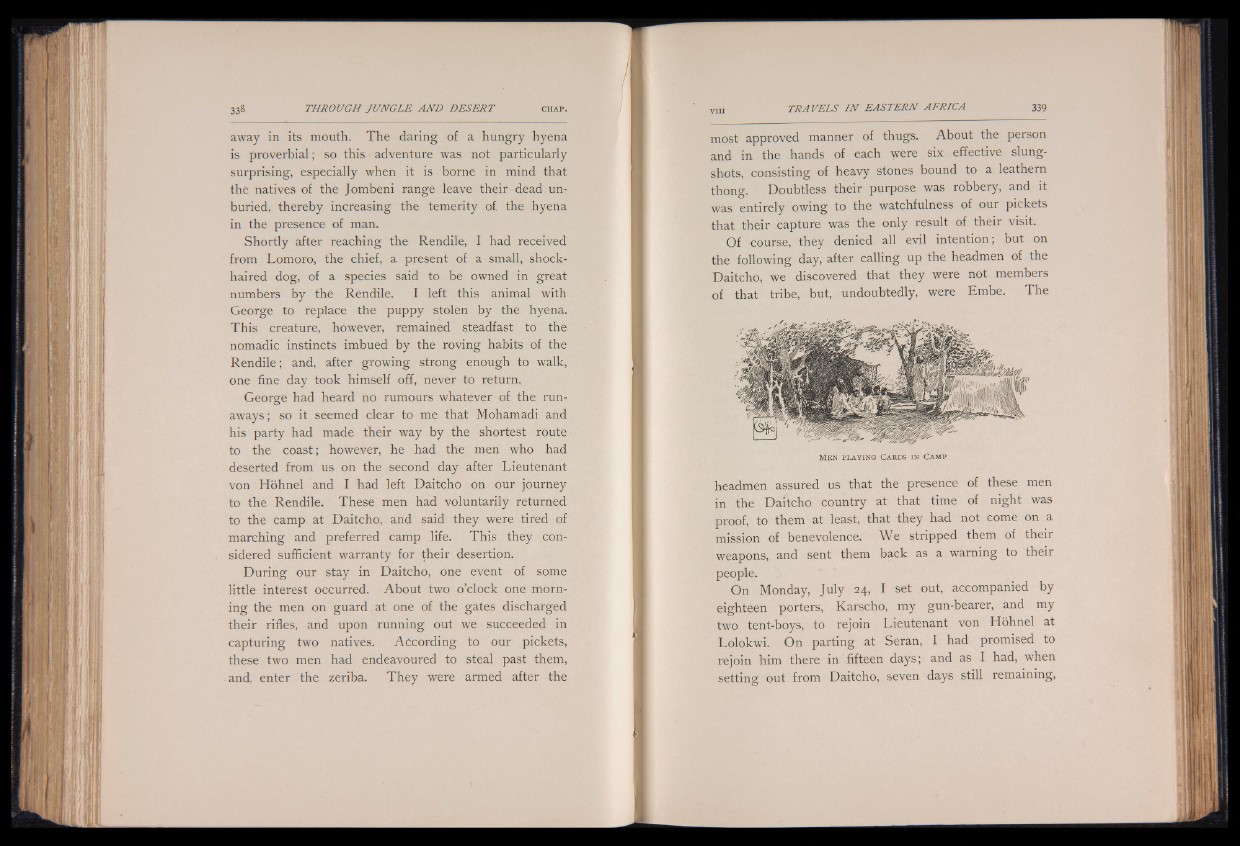
away in its mouth. The daring of a hungry hyena
is proverbial; so this adventure was not particularly
surprising, especially when it is borne in mind that
the natives of the Jombeni range leave their dead unburied,
thereby increasing the temerity of the hyena
in the presence of man.
Shortly after reaching the Rendile, I had received
from Lomoro, the chief, a present of a small, shockhaired
dog, of a species said to be owned in great
numbers by the Rendile. I left this animal with
George to replace the puppy stolen by the hyena.
This creature, however, remained steadfast to the
nomadic instincts imbued by the roving habits of the
Rendile; and, after growing strong enough to walk,
one fine day took himself off, never to return.
George had heard no rumours whatever of the runaways;
so it seemed clear to me that Mohamadi and
his party had made their way by the shortest route
to the coast; however, he had the men who had
deserted from us on the second day after Lieutenant
von Hohnel and I had left Daitcho on our journey
to the Rendile. These men had voluntarily returned
to the camp at Daitcho, and said they were tired of
marching and preferred camp life. This they considered
sufficient warranty for their desertion.
During our stay in Daitcho, one event of some
little interest occurred. About two o’clock one morning
the men on guard at one of the gates discharged
their rifles, and upon running out we succeeded in
capturing two natives. According to our pickets,
these two men had endeavoured to steal past them,
and, enter the zeriba. They were armed after the
most approved manner of thugs. About the person
and in the hands of each were six effective slung-
shots, consisting of heavy stones bound to a leathern
thong. Doubtless their purpose was robbery, and it
was entirely owing to the watchfulness of our pickets
that their capture was the only result of their visit.
Of course, they denied all evil intention; but on
the following day, after calling up the headmen of the
Daitcho, we discovered that they were not members
of that tribe, but, undoubtedly, were Embe. The
M e n p l a y i n g C a r d s in C a m p
headmen assured us that the presence of these men
in the Daitcho country at that time of night was
proof, to them at least, that they had not come on a
mission of benevolence. We stripped them of their
weapons, and sent them back as a warning to their
people.
On Monday, July 24, I set out, accompanied by
eighteen porters, Karscho, my gun-bearer, and my
two tent-boys, to rejoin Lieutenant von Hohnel at
Lolokwi. On parting at Seran, I had promised to
rejoin him there in fifteen days; and as I had, when
setting out from Daitcho, seven days still remaining,